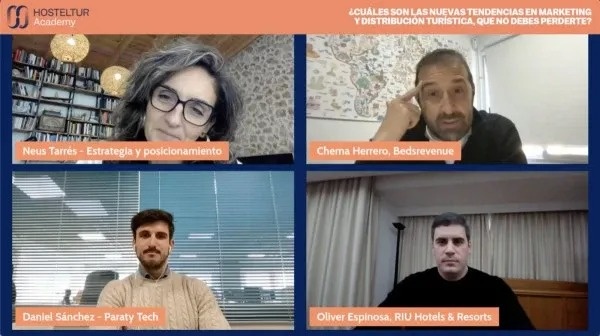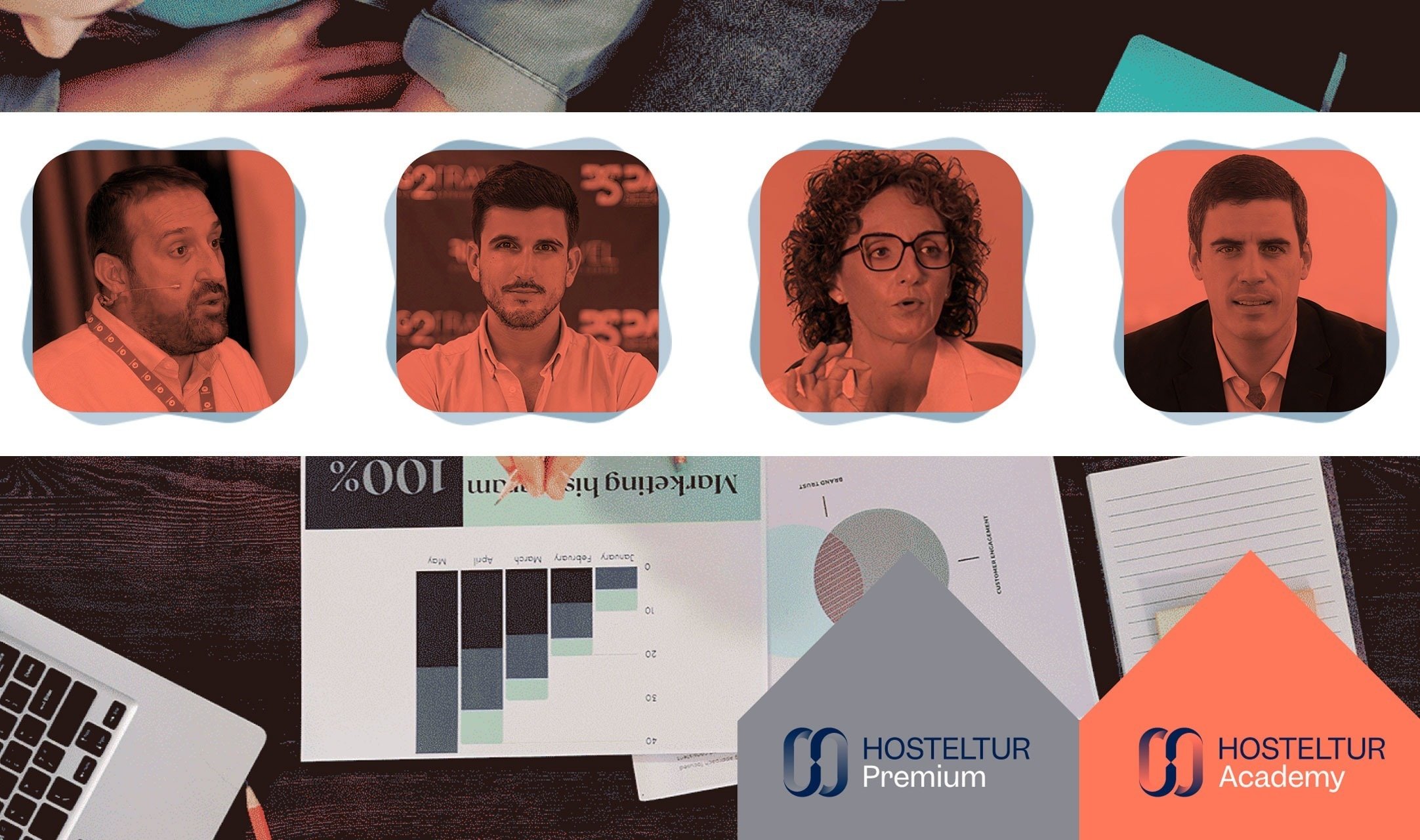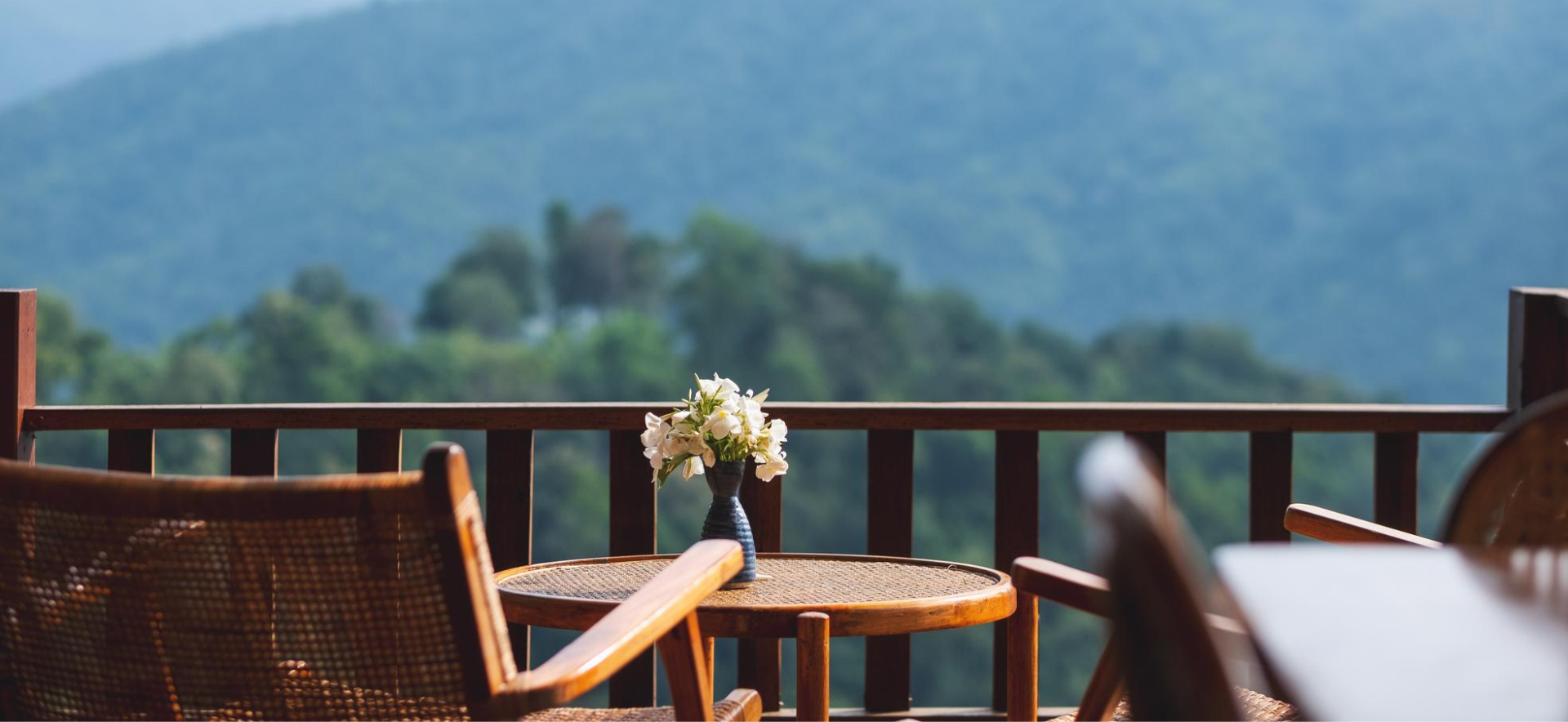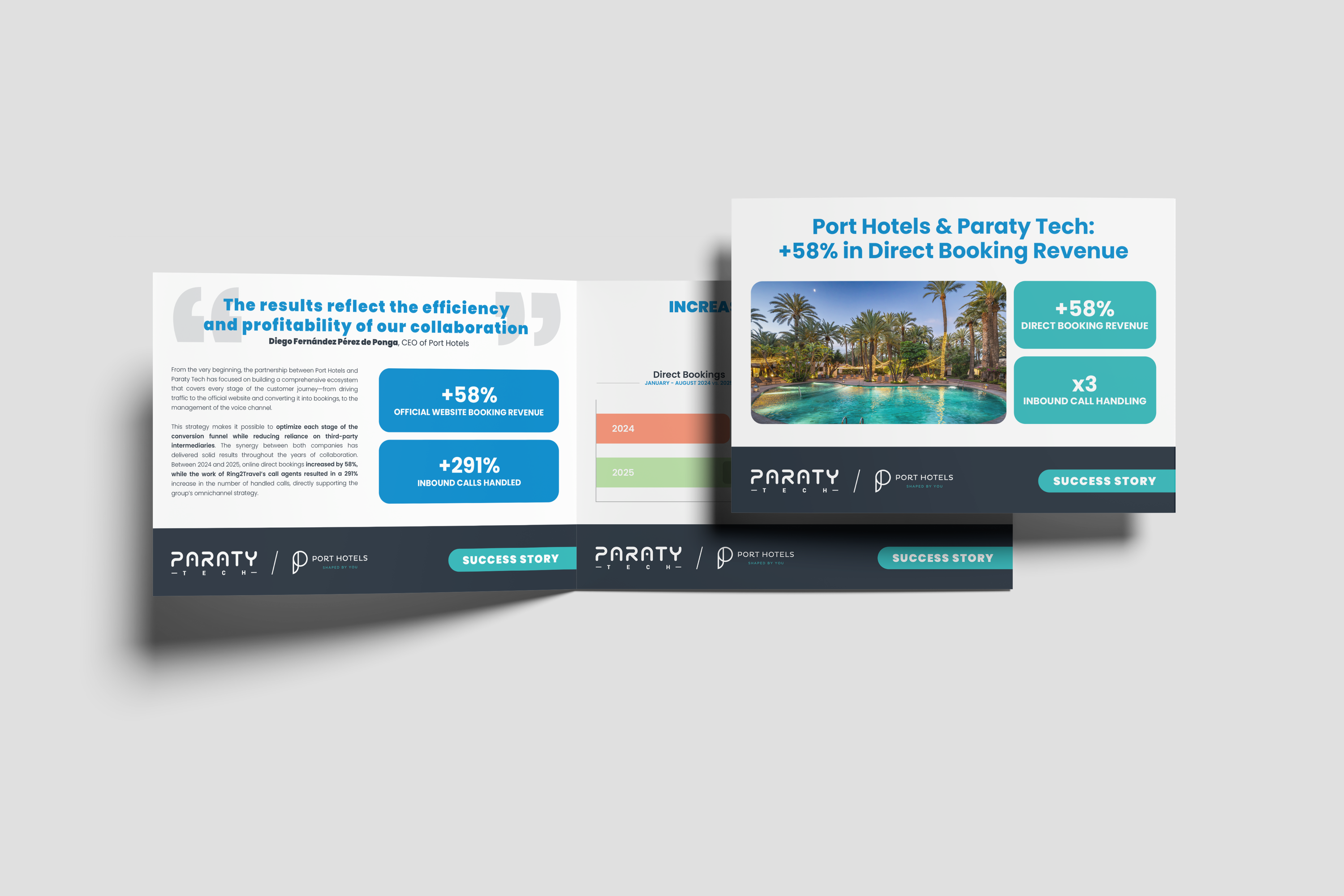2023 trends in hotel marketing and distribution
Marketing 26/01/2023Hosteltur Premium Experts Panel, January 26, 2023
From a panel as anticipated by Hosteltur for weeks, something very good could only come out. And the Premium Experts Panel, under the title "What are the new trends in marketing and tourist distribution that you shouldn't miss?", framed within the actions of Hosteltur Academy, undoubtedly lived up to expectations.
Oliver Espinosa, director of RIU Hotels & Resorts, Daniel Sánchez, CRO of Paraty Tech, and Chema Herrero, CEO of Bedsrevenue, accompanied Neus Tarrés in her role as moderator. Before introducing the first speaker, she opened the session by summarizing the keys of the delicate global context in which we find ourselves immersed, wondering how it could affect tourist distribution and direct hotel sales in 2023, even when the most recent edition of Fitur, concluded last Sunday, left a very good overall impression and expectations of prosperity.
Oliver Espinosa: "The democratization of technology has created a complex distribution environment"
Oliver Espinosa, director of RIU Hotels & Resorts, believes that in recent years, there has been a democratization of technology resulting in a complex environment where wholesalers buy and sell, and the hotel ends up losing control over its rates and inventory. He referred to the concept of "hyperconnected distribution," where B2B to B2C and B2B to B2B to B2B to B2B models coexist.
In this scenario, the retailer, one of the most affected parties, has ended up demanding a direct relationship with the hotel, increasingly widespread. A new mode of relationship characterized, fundamentally, by unmediated interaction and improved information. For hoteliers, it represents a mode of diversification, gaining clarity in the face of hyperconnectivity and reducing distribution costs. For the retailer, it means, among other things:
- Access to a greater number of product versions and additional products
- Meeting orphan demand
- Access to the complete inventory
- Enjoying immediate commission payments

Daniel Sánchez: "The key to many of the trends that 2023 holds lies in process automation"
Daniel Sánchez, Chief Revenue Officer of Paraty Tech, focused his intervention on identifying the trends that 2023 holds in terms of direct sales. Specifically, he referred to ten trends that, in his opinion, will largely mark the path that hoteliers must follow for expected results, and where automation has much to say.
Some are old friends of the sector that have resurfaced due to the pandemic, while others represent an innovation for many. However, according to Daniel, there is the technology and resources to implement all of them.
- Ancillary Revenue
- Voice channel
- "Pro" direct module
- Artificial Intelligence
- Immersive Purchasing
- A/B Testing
- Advanced Digital Marketing
- Loyalty
- Omnichannel
- Direct channel vs. Tour operators
We don't just mean upselling and cross-selling. We must focus on moving from RevPar to TrevPar. Increasingly, this involves personalizing the experience, probably the best way to compete with OTAs and tour operators. And for this, we must be prepared to be able to sell services beyond accommodation, even independently and through automated processes.
Although there is a widespread lack of specialization in telephone service, if hotels were aware of the potential of this direct channel, which has gained ground due to the pandemic, they would take much better care of it. The voice channel has one of the highest conversion rates and, combined with a good CRM, which facilitates lead tracking through automated tasks, its potential is extraordinary.
Coinciding with everything expressed by Oliver, Daniel emphasized how this module is becoming more and more like Loyalty Clubs for guests. Work is being done on incentive programs and differentiated strategies for each agency. It is a very profitable sale that also contributes a lot in terms of database acquisition.
Without needing to think about the hotel Minority Report, the truth is that artificial intelligence is not the future; it already coexists with us and is present in the generation and application of business rules, automated sales tips, follow-ups of potential customers, and conversations with guests.
A trend that is making its way at giant steps and promises the maximum level of customization, while increasing conversion and improving ancillary revenue.
There is no better way to confirm the appropriateness of the actions we take than through A/B Testing, something that hotels are increasingly clear about. It improves ratios, generates confidence, increases conversion, and enriches the user experience.
It seems that the idea of not putting a ceiling on digital marketing investment is gradually being internalized. Hotels are incorporating specialists in this field, including new channels and models to combat OTAs and maximizing the potential of metasearch engines.
Once relegated almost exclusively to large chains, today it is a must for all establishments, almost a mechanism for capturing the first reservation and, perhaps, also the last. Loyalty is experiencing a new stage of splendor, and the variety of existing programs is a great ally to better understand the guest, improve the customer journey, and, of course, try to ensure a profile of repeat customers.
Just as the customer can try to contact us through various channels, the hotel must be able to attend to them in all of them in a coordinated manner, online and offline, demonstrating that it knows their preferences and automating communication flow tasks as much as possible.
Tour operations have reactivated a lot and will do so even more throughout 2023. Be very careful with opaque packaging, with opaque disparities because this player wants to recover its status, and the hotel cannot afford to let them sell the juiciest part of their inventory.
Chema Herrero: "The numbers have improved a lot, but not due to a change in strategy, but rather a very special situation"
The last intervention of the premium experts panel came from Chema Herrero, CEO of Bedsrevenue, who began by highlighting that, indeed, in 2022 there has been a widespread improvement in the figures associated with hotel sales, with increases in occupancy (33.1%), ADR (11.9%), and RevPAR (49%), but clarifying that it has not been due to changes in strategies but rather to a situation that has been given to us, a "special circumstance," dependent on very changing variables. He talked about good forecasts but that must be interpreted with caution. After this brief introduction, he focused his speech on the importance of finding the unicorn, understood as the Buyer Persona, and the need to ask the right questions: who sells to me, how and when do they do it, how much does it cost me, how profitable is it in terms of RevPar / TrevPar, how loyal is that customer, and what do we really know about them.
Regarding distribution, he also emphasized a recurring idea but still considered a pending subject: it is not enough to just sign contracts. His recommendations involve establishing an intermediation scoring to achieve the much-desired healthy channel mix. The goal is to identify which distributors are not necessary because it is increasingly difficult for a distributor to provide a specialized niche that really helps make a difference. It is, therefore, about defining economic objectives but also defining operational objectives with each of the distributors: budget and action plan, in short.
In the second part of his intervention, he spoke of a "return to the pre-pandemic past," referring to a trend in which the hotelier settles into a mix dependent on tour operations, a player that is working very hard to occupy the position it had before the pandemic. The customer has changed, and we must be able to reach them without depending on third parties. Something that OTAs are very aware of and, relying on technological evolution within distribution, execute perfectly.
Therefore, the roadmap seems clear: we must identify the buyer persona and get involved in the battle for the customer, our present and future buyer. The gold of our time is data, and the cleaner it is, the easier it will be to work with it. We must not be afraid to differentiate between profitable customers, less profitable customers, and customers who simply are not.
To impact each phase of the conversion funnel, we must find a strategy that adds value before, during, and after the stay, understanding Customer Lifetime Value (CLV) as data that must always be on the table. The technology to do this is within our reach, and the ROI it provides is fantastic. It's time to practice, and quoting verbatim, be a surgeon in revenue.
Recap in bullet points
- Direct sale - retailer connection
- Increase TrevPar
- Establish a distribution scoring
- Know the customer in-depth to increase CLV
- Pay special attention to the early sale of distribution
- Be very vigilant of the US market and nearby markets
- Keep an eye on the implementation of NFTs and blockchain technology
- How to incorporate gamification into distribution

















